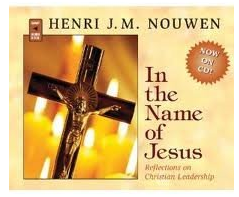This is the 2nd week of the Discernment Series.
This time it’ll be good to know about the terms Consolation and Desolation as described by Ignatius of Loyola in his work Spiritual Exercises.
BUT FIRST…some of you who know me know I’m not a Catholic. I’ve been trained at a decidedly Evangelical Seminary, called…not-so-creatively “Evangelical Seminary“. So why am I going on about a 500 year old book from a counter-reformation Catholic?
In short, because your soul will be blessed.
Because the tensions from that time (1491-1556 CE) aren’t here in force now so we can learn some very useful things that align with basic Christian theology. The major hostilities at the time made listening to what God was saying “on the opposing side” quite difficult. (Things were hostile to the point of murder on both sides, no less….how Jesus of them?!ugh.) So, from the point of my tradition, Protestants rejected both grimy bath water and baby.
In general, Catholics rejected what they considered a heretical and a rebellious front to the unquestionable authority of the Church, and didn’t see what was coming from Reformers as helpful or biblical ideas for doing church differently. (It took about 500 years at Vatican II to incorporate many of those needed Reformation era ideas, but a surprising number of them went through and were accepted. Masses conducted in a language understood by the people listening being just one of them. Then, it takes 50 years or so, so I’m told by Catholics, to see them flesh out at the parish (local church) level.)
SO Now-
We’re at a point (I’m generalizing here) where we don’t have to fear reading other streams of Christianity from that time. No one will be tied to a stake and torched, not literally anyway. I think we’re okay accepting that God has much truth to impart from devoted believers with various backgrounds, and this willingness to hear can aid our spiritual growth.
Ignatius was convicted and motivated to “find God in all things”.
I like that about him. This is the way we live incarnational lives. This is how our worldview and our true selves get put right by the love and dominion of our Savior and Creator, and his Son, the enfleshed God, Jesus Christ. While I find some of the ideas, concepts, doctrine, and long-ago language of Ignatius foreign to me, I don’t let it unsettle me. Instead, I let the Holy Spirit speak to my heart and guide me while I read. I pray with the ideas and ask for guidance. I admit I have a lot to learn. I leave some things behind and take in what is transformative and what will make me more like Jesus, the Christ.
Not every but of it will help me or you, but enough will that I bother to write about it and include those outside of my tradition and experience in my blog to open our eyes to some great advice and sage wisdom for understanding how to discern God’s will in transformative ways.
So now for “consolation” and “desolation”
Ignatian teaching has it that these are two terms that help us decipher what is from God, and what is not. At first blush, we may assume that consolation is “happy…yeah God…feelings” and so forth. Desolated might be unhappy ones. But, hang on while we dig a little deeper.
For Ignatius, Consolation is a word to describe interior stirrings that are aroused in the soul that has been inflamed with love for God as Creator and Lord, and too every creature made by the Creator. It’s marked in every increase in faith, hope, love, and interior joy that bring a filling of peace and quiet. A drawing closer to God. A soul in consolation may weep too at the recognition and repentance of sins, and also the relief of the abiding grace of God. A godly grief may be a Consolation, though a difficult patch to get through. Most importantly Consolation is a gift. We don’t arrive there by techniques or things we do. God graces us with consolation.
Desolation is indeed the opposite of consolation, but note how Ignatius writes about it,
“I call desolation what is entirely the opposite (of consolation), as darkness of soul, torment of spirit, inclination to what is low and earthly, restlessness rising from many disturbances and temptations which lead to want of faith, want of hope, want of love. [In desolation] the soul is wholly slothful, tepid, sad, and separated, as it were, from its Creator and Lord.”
Desolation then is all the stuff that stirs our souls and draw us away from God, regardless of the subjective feelings. Some in desolation will not recognize it as that. They will be oblivious. And plenty more will not associate what feelings they have with interior stirrings of the soul. Maybe they’ll blame the government, the economy, circumstances, or other things instead.
So, now that you know which is which, listen and tune in to your interior stirrings. Consolation and Desolation are not mere feelings. They have to do with a conflation of responses and influences that are the movings at the soul level (our core).
Note when you are in consolation. Note when you sense desolation. Get a feel for the movements and workings of God. Begin to distinguish them from the ungodly ones that come from the Enemy or the ungodly parts of yourself.
Next time I’ll talk about the uses and aims of both consolation and desolation in God’s work on us.
To read the (English) PDF of Ignatian’s “Spiritual Exercises” click here.
(Don’t miss the next installation of the series. Use the sidebar to get the next update.)





